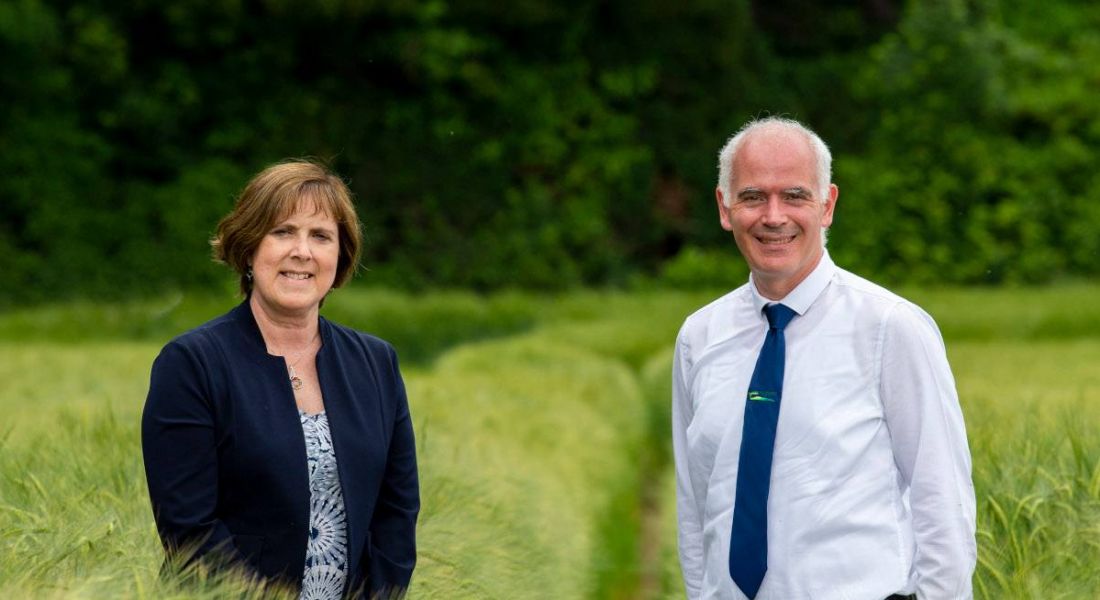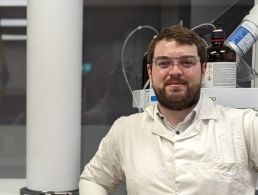Modules covered by the one-year course include data analytics, database management, communication and location technologies, and more.
With Ireland working to become an international leader in the agritech space, Dundalk Institute of Technology (DkIT) is introducing a new postgraduate course in agri-analytics.
The diploma course is part of the Government-subsidised Springboard scheme, which focuses on upskilling learners in areas of industry affected by skills gaps.
The new agri-analytics course can be completed in one year and provides participants with the skills they will need to work in data analytics roles across the farming sector, advisory services, the agri-food industry and other agritech businesses. It has space for 18 students and will begin in September 2022.
‘The combination of good data analytics skills coupled with expertise in agriculture is difficult to find’
– DR BREDA BRENNAN
To find out more about what participants can learn from the course, SiliconRepublic.com spoke to Dr Breda Brennan, head of DkIT’s Department of Agriculture, Food and Animal Health. She explained that the programme has eight mandatory modules and one elective module.
“The modules cover data analytics, database management, communication and location technologies, embedded systems and sensors, technologies for crop and grass production, precision animal production, data communication and protocols, bioinformatics and automated systems in agri-food,” said Brennan.
All of these topics are covered in the context of agriculture and/or food processing. According to Brennan, the course has been developed in consultation with industry stakeholders such as Teagasc and Intellync.
She and her team also “consulted widely” with organisations such as Hilton Foods, Herdwatch, Terra NutriTech and AgTech Ireland. Others supported the programme at the time of its funding application, including Dairymaster, Moocall, True North Technologies, Progressive Genetics, Farmeye, Lely, ApisProtect, CropSafe, Agri-Spread, JFC Agri and more.
“Our industry contacts have indicated that they would employ these graduates and the combination of data analytics and agriculture skills would suit their needs perfectly,” said Brennan.
She added that graduates could find jobs in the food industry, as well as in national bodies such as Teagasc and the Department of Agriculture, Food and the Marine.
“They may also find employment in data-based or digital roles in other sectors such as environmental protection, health, finance and communication,” Brennan said. “The demand for such skills is high and still on the increase.”
She noted that Ireland is becoming “an important international hub” for the agritech industry and more companies are recognising the potential in a country with a strong agricultural background.
Northern Ireland’s CropSafe recently raised $3m in seed funding for its farm management platform, and Cotter Agritech, ProvEye and Izario were recognised for their innovations at a new agritech accelerator hosted by University College Dublin.
Last year, Canadian drone company ZenaDrone announced plans to hire in Ireland as part of its bid to introduce Irish farmers to drone tech. ZenaDrone founder Dr Shaun Passley then spoke to SiliconRepublic.com about how this technology could be used to make working farmers’ lives easier.
From automating the process of spraying crops to counting livestock, he said drones could save farmers a lot of time. But the barrier to adopting tech in general on Irish farms, he noted, was a lack of experience with technology. It is a skills gap that needs to be addressed if Ireland wishes to embrace agritech.
Brennan agrees. “There is a significant shortage of skills in this area so it is important that Government support is provided to encourage graduates to move into this industry,” she said.
“In particular, the combination of good data analytics skills coupled with expertise in agriculture is difficult to find,” Brennan added, based on insights from her industry contacts. “Our programme hopes to contribute to addressing this deficit.”
It is possible for learners to complete the new course and do their farming work at the same time, should they need to. The course runs on Monday and Tuesday on campus at DkIT to facilitate those who work and farm part-time. Students who are farming can also integrate elements of the course, including assignments, with their own farm activities.
For more information on how to apply, see DkIT’s website.
10 things you need to know direct to your inbox every weekday. Sign up for the Daily Brief, Silicon Republic’s digest of essential sci-tech news.




